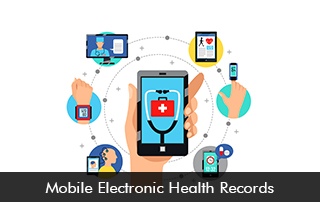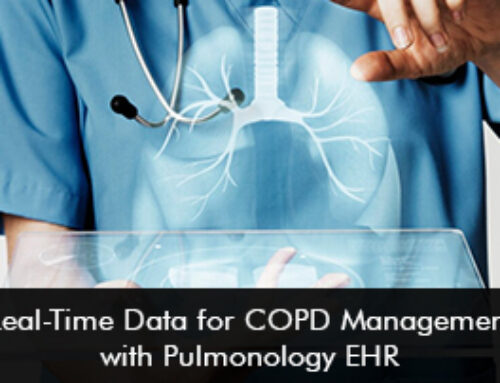The way healthcare professionals access and handle patient information has been changed by mobile electronic health record (EHR) solutions. With the popularity of smartphones and tablets, care teams can now access vital patient data whenever and wherever they need to, which has a positive impact on efficiency, patient care, and overall healthcare results. In this blog post, we’ll look at the advantages of mobile EHR systems for modern healthcare and how they give care teams access to patient records wherever they are.
Empowering Care Teams with On-the-Go Access
Mobile EHR systems provide safe, real-time access to patient records via smartphones and tablets, empowering care teams. Healthcare practitioners may make educated decisions, increase care coordination, and improve patient outcomes anytime and anywhere with mobile access.
The Power of Mobile EHR Solutions:
Mobile EHR systems enable healthcare workers to access patient data securely and in real time via their cellphones or tablets. Having access to patient information at the moment of care allows for faster decision-making and improves care coordination among team members.
Benefits of On-the-Go Access:
1. Enhanced Care Delivery:
– Having instant access to patient information, lab findings, and treatment plans enables care teams to make informed decisions.
– Improved coordination and communication among healthcare practitioners results in more efficient care delivery.
2. Improved Patient Safety:
– Immediate access to patient alarms, prescription interactions, and medication allergies helps avoid medical mistakes and unfavorable outcomes.
– The likelihood of repeated tests or treatments can be decreased by care teams updating patient records in real-time.
3. Time and Cost Efficiency:
– Mobile EHR solutions free up time for healthcare professionals by removing the need for manual data entry and documentation.
– Simplified processes lessen administrative work, allowing care teams to concentrate more on patient care.
4. Flexibility and Accessibility:
– Care teams can securely access patient data from any place, including from a hospital, clinic, or even while making home visits.
– Mobile EHR systems make telemedicine and remote consultations possible, increasing access to healthcare in rural or underserved areas.
III. Key Features of Mobile EHR Solutions:
1. Security and Privacy:
– Strong encryption and multiple-factor authentication guarantee the security and compliance of patient data with privacy laws.
– Remote wiping functions in the event that devices are lost or stolen stop unauthorized access to patient information.
2. User-Friendly Interface:
– Even less tech-savvy healthcare professionals can use mobile EHR systems effectively thanks to intuitive and simple-to-use UI.
– Care teams can tailor their customer experience based on their unique requirements by using customizable dashboards.
3. Offline Access:
– Offline access is provided by certain mobile EHR solutions, enabling care teams to view patient data even in places with spotty connectivity.
4. Integration with Other Systems:
– A complete picture of the patient’s information is made possible by the systems’ seamless connection with other healthcare systems, including billing and lab systems.
5. Overcoming Challenges and Adoption:
– Ensuring data consistency and synchronization between desktop and mobile EHR platforms.
– To leverage the advantages of mobile EHR systems, care teams need receive the appropriate training and support.
– Addressing security issues to increase usage of mobile EHR.
Modern care teams no longer can function without mobile EHR systems, which give them access to patient data wherever they are. These solutions play a critical role in revolutionizing healthcare and promoting good patient outcomes by improving care delivery, increasing patient safety, and reducing time spent on tasks. The use of mobile EHR systems is expected to increase as technology develops, giving care teams more accessibility and flexibility while delivering patient-centered care.







